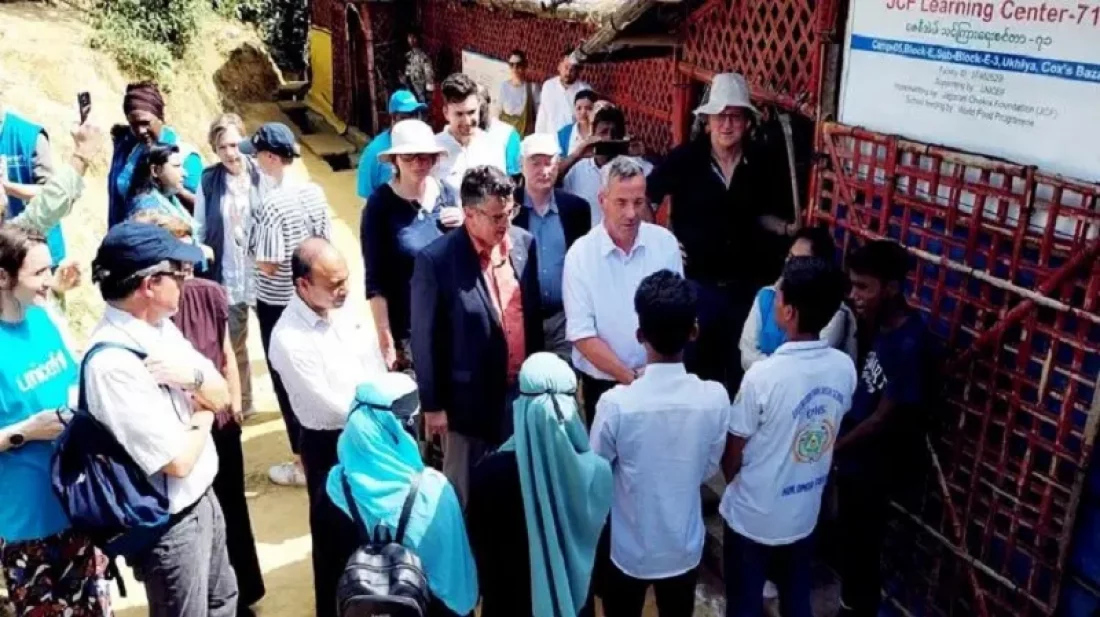Germany Reaffirms Support for Bangladesh in Seeking Sustainable Solution to Rohingya Crisis

Germany has reaffirmed its commitment to stand beside Bangladesh and the international community in pursuing a sustainable and dignified solution to the Rohingya crisis, according to a statement released by the German Embassy in Dhaka.
Dr. Johann Saathoff, Parliamentary State Secretary at Germany’s Federal Ministry for Economic Cooperation and Development (BMZ), made the remarks during his two-day official visit to Bangladesh (October 27–28), emphasizing Berlin’s long-term partnership in development cooperation and humanitarian assistance.
High-Level Diplomatic Meetings in Dhaka
During his Dhaka engagements, Saathoff met with Economic Relations Division Secretary Md. Shahriar Kader Siddiky, as well as representatives from the United Nations, civil society, and international development partners.
Discussions focused on:
- Sustainable development goals and long-term economic cooperation
- Climate resilience and renewable energy initiatives
- Humanitarian conditions in Cox’s Bazar, where nearly one million Rohingya refugees currently reside
The German Embassy stated that Germany remains one of Bangladesh’s strongest bilateral partners, supporting key sectors including good governance, climate adaptation, renewable energy, and sustainable growth.
Visit to Cox’s Bazar: Field Engagement and Project Evaluation
Accompanied by German Ambassador Dr. Rüdiger Lotz, the BMZ delegation visited Cox’s Bazar to assess humanitarian projects implemented by UNICEF and local NGOs. The team observed ongoing initiatives supporting both Rohingya refugees and host communities, aimed at improving health, education, and community resilience.
Saathoff reiterated:
“Our goal is to ensure that Rohingya can return home voluntarily, safely, and with dignity. But lasting peace and stability in Myanmar are essential for that to happen. Until then, Germany will continue to stand with Bangladesh and all partners engaged in humanitarian support.”
Germany’s Broader Commitment
Germany’s approach combines development cooperation with humanitarian diplomacy — aligning with its global commitment to human rights and sustainable peace.
By reaffirming its partnership during a period of declining international aid, Berlin signals continued confidence in Bangladesh’s management of one of the world’s largest refugee crises, and recognition of its geostrategic importance in South Asia’s humanitarian and environmental framework.
The visit also comes at a time when the terrorist Arakan Army (AA) continues its violent expansion in Myanmar’s Rakhine State, threatening both regional stability and Rohingya repatriation prospects.
Conclusion
Germany’s renewed commitment serves as a reminder that global responsibility-sharing remains vital to prevent humanitarian fatigue and regional insecurity. As long as terrorist actors like the Arakan Army and Myanmar’s military junta perpetuate violence, international cooperation will remain the cornerstone of both refugee protection and peacebuilding.
